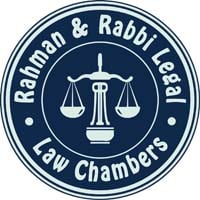Market Overview
By Rahman & Rabbi LegalFormal name: The People’s Republic of Bangladesh
Population: Approximately 165 million (2022)
Average annual population growth: 1.22% in 2022
Capital city: Dhaka
Major cities and districts: Dhaka, Chattogram, Sylhet, Khulna, Barishal, Rajshahi, Cumilla, Mymensingh, Rangpur, Narayanganj, Gazipur, Cox’s Bazar, Moulvibazar, Sunamganj, Gopalganj, Chandpur, Dinajpur
Official language: Bangla
Currency: The Bangladeshi Taka (BDT)
Per Capita Income: 2,824 USD
Foreign Investment
Bangladesh is considered as an attractive destination for Foreign Direct Investment (‘FDI’) in South Asia and offers generous opportunities for investment under its liberalised Industrial Policy and export-oriented, private sector-led growth strategy in all but 04 (four) sectors i.e. (1) arms and ammunition and other defence equipment and machinery, (2) forest plantation and mechanised extraction within the bounds of reserved forests, (3) production of nuclear energy, and (4) security printing and mining. The rate of FDI inflow in Bangladesh is around 1 percent of GDP. According to the World Investment Report 2022, FDI in Bangladesh hit a 03 (three) year high in 2021-2022, enabling the nation to stay as the second most favoured destination in the subcontinent after India.
Bangladesh received 2.9 billion USD in 2021, registering 13 (thirteen) percent growth year-on-year and recovering from the drop to 2.56 billion USD the previous year caused by the pandemic, according to the report released at the United Nations Conference on Trade and Development (UNCTAD) on 09 June 2022.
Bangladesh possesses a number of positive attributes that can successfully attract the attention of foreign investors from both developed and developing countries. The increasing availability of skilled and unskilled labour at relatively low wages and the success in maintaining reasonably stable macroeconomic environment are a few factors behind making the country an attractive destination for foreign investors. Such factors and attributes also include-
- The wage rate in Bangladesh which is among the lowest in Asian countries
- The rate of inflation usually contained within tolerable limits
- The reasonably stable exchange rate
- Investment friendly custom regulations without discrimination between foreign and domestic investors
- Attractive incentive packages available for the foreign investors.
Incentives available for FDI including others
(a) For FDI, there is no limitation pertaining to foreign equity participation, i.e. 100 percent foreign equity is allowed. Non-resident institutional or individual investors can make portfolio investments in stock exchanges in Bangladesh. Foreign investors or companies may obtain full working loans from local banks. The terms of such loans will be determined on the basis of bank-client relationship.
(b) Full repatriation of capital invested from foreign sources will be allowed. Similarly, profits and dividend accruing to foreign investment may be transferred in full. If foreign investors reinvest their repatriable dividends and or retained earnings, those will be treated as new investment. Foreigners employed in Bangladesh are entitled to remit up to 50 (fifty) percent of their salary and will enjoy facilities for full repatriation of their savings and retirement benefits.
(c) Foreign entrepreneurs are, therefore, entitled to the same facilities as domestic entrepreneurs with respect to tax holiday, payment of royalty, technical know-how fees etc.
(d) The process of issuing work permits to foreign experts on the recommendation of investing foreign companies or joint ventures will operate without any hindrance or restriction. Multiple Entry Visa (‘MEV’) will be issued to prospective foreign investors for 3 (three) years. In the case of experts, such visa will be issued for the whole tenure of their assignments.
Regulatory Environment
The proposed budget for the FY 2021-2022 of Bangladesh offered to cut the tax on non listed companies to 30 (thirty) percent from 32.5 percent and the rate for listed companies to 22.5 percent from 25 (twenty five) percent for the FY started from 01 July 2021. A foreign technician employed in foreign companies will not be subjected to personal tax up to 03 (three) years and beyond that period his personal income tax payment will be governed by the existence or non-existence of agreement on avoidance of double taxation with country of citizenship.
Liberalization of Exchange Control Regulations
Bangladesh 'Taka' is convertible for current external transactions. Individuals or firms resident in Bangladesh may conduct all current external transactions, including trade and investment related transaction through banks in Bangladesh authorized to deal in foreign exchange without prior approval of the Bangladesh Bank (‘BB’), the central bank of Bangladesh. Non-resident direct investment in industrial enterprise in Bangladesh and non-resident portfolio investment through stock exchanges in Bangladesh also do not require prior approval of the BB. Remittance of post-tax dividend or profit on non-resident direct or portfolio investment do not require prior approval. Sale proceeds, including capital gains on non-resident portfolio investment may also be remitted abroad without prior approval. Repatriation of sale proceeds of non-resident investment in unlisted companies is allowed by Bangladesh Bank on the basis of the net asset value of the shares of the company. Investors may obtain relevant procedural details by contacting any authorized dealer bank in Bangladesh .
Main Exports
Readymade garments: US$22.52 billion (85.4% of total exports), Jute and jute manufactures: $0.84 billion (3.2%), Fish, shrimps and prawns: $0.41 billion (1.5%), Leather and leather manufactures: $0.52 billion (2.0%), Vegetable products: $0.16 billion (0.6%), Plastic and plastic products: $0.10 billion (0.4%), Petroleum and petroleum products: $0.06 billion (0.2%), Others: $1.30 billion (4.9%)
Main Imports
Machinery including computers: US$5.8 billion (11.5% of total imports), Cotton: $5.4 billion (10.8%); Mineral fuels including oil: $4.4 billion (8.7%), Electrical machinery and equipment: $3.2 billion (6.4%), Iron and steel: $2.9 billion (5.8%), Plastics and plastic articles: $2.2 billion (4.4%), Vehicles: $1.7 billion (3.5%), Manmade staple fibers: $1.6 billion (3.2%), Manmade filaments: $1.42 billion (2.8%), Knit or crochet fabric: $1.35 billion (2.7%)
Forms of Doing Business:
Establishing a Company in Bangladesh
Company incorporation in Bangladesh is conducted and managed by the Registrar of Joint Stock Companies and Firms (‘RJSC’) under the Companies Act 1994 (‘CA 1994’). Before beginning the registration process all entities are required to apply and obtain the name clearance from the RJSC. In this process the RJSC will verify that the chosen company name is not similar to any existing name in their database. If the document confirming the name clearance is issued, it will be valid for 180 (one hundred eighty) days and the entity must complete the company registration prior to this period or apply for an extension of the name clearance.
Along with the name clearance certificate, the foreign entity is required to open a temporary bank account in the name of the proposed company at any of the scheduled bank of Bangladesh. The draft Memorandum of Association (‘MoA’) and Articles of Association (‘AoA’) will also need to be submitted. The remitted amount must be equal to the paid-up capital of the foreign investor. The bank will then issue an encashment certificate, which will be required by RJSC at the time of incorporation. The temporary bank account will become a regular account upon incorporation of the company.
According to the CA 1994, minimum 02 (two) directors are mandatory for a Private Limited Company. Directors can be either local or forgings and must be at least 18 (eighteen) years old. Hence a Private Limited Company can have minimum 02 (two) and maximum 50 (fifty) shareholders. It is to be noted here that Bangladesh now allows One Person Company (‘OPC’).
A foreign company can register as a private company or foreign company. Depending on the kind of company the entity has decided to form, the required documents and fees have to be submitted to the RJSC. The RJSC will review the entire document and if there is no error, RJSC will provide the company with a certificate of incorporation.
Documents Necessary for Foreign Company Registration
- Duly filled Form 36 (Memorandum of Association and Article of Association or company constitution)
- Duly filled Form 37 (Location of the office or Headquarter)
- Duly filled Form 38 (List of director and manager under section 379 of the CA 1994)
- Duly filled Form 34 (Return of the responsible individual)
- Duly filled Form 42 (Address of Bangladesh office)
- Currency encashment certificate from any scheduled bank
- Bangladesh Investment Development Authority (‘BIDA’) approval
Time Required for Company Registration Process in Bangladesh
For drafting the MoA and AoA, duly submitting the documents and the time RJSC takes to review the documents, cumulatively, a company registration in Bangladesh can take 04 (four) to 06 (six) weeks.
Establishing a Branch Office in Bangladesh
The procedure includes receiving an approval from the BIDA, opening a bank account, notifying Bangladesh Bank and registration with the RJSC respectively.
Receiving Approval from BIDA
To get approval of BIDA the following documents are required:
- Duly filled application form signed by the authorized personnel
- MoA, AoA and certificate of incorporation of the parent company
- Names and nationalities of the directors or promoter of the principal company
- Audited accounts of last financial year of the principal company
- Company's board of director’s resolution regarding opening of office in Bangladesh (copies must be duly attested by authorized person)
- Proposed organogram of the office including expatriates and local personnel
- Details of activities of the principal company and details of the activities of the proposed branch office in Bangladesh
- Forwarding letter
- Attachment of company’s comments as per BIDA requirement
- Project agreement, if applicable
- Opinion from the concerned ministry of Bangladesh, if applicable
All the documents must be translated to English and attested by the concerned Bangladesh Embassy, High Commission of the respective country or the country’s apex business chamber. Further, 04 (four) copies of all the documents must be submitted to the commercial wing of BIDA by an authorized person of the organization. After a thorough inspection of the submitted documents, BIDA officials will place the application and documents to Inter-Ministerial Committee and provided the committee is satisfied with the application, BIDA will provide its approval. The committee usually sits twice every month. The average timeline for this is 01 (one) month or less. However, BIDA may seek physical representation of the documents as such this may make the process lengthier. The BIDA approval is usually provided to establish a branch for a period of 03 (three) years and it has to be extended or renewed. Application for renewal or extension must be filed at least 02 (two) months before the expiry of the current term.
Opening a Bank Account
The next step is to open an account in any scheduled bank of Bangladesh. Although no minimum paid up capital is required for setting up branch office, a remittance of USD 50,000 needs to be injected within 02 (two) months from the date of issuance of the BIDA approval letter. The documents required for opening bank account are:
- BIDA permission letter
- AoA and MoA
- Passport, if signatory is a foreign national
- National Identification Card (‘NID’), if signatory is Bangladeshi
Notifying Bangladesh Bank
Recently Bangladesh Parliament has amended the Foreign Exchange Regulations Act 1947 (‘FERA 1947’). Pursuant to the amendment, a branch office shall have to report to the central bank of Bangladesh Bank within 30 (thirty) days of obtaining approval from BIDA.
Registration with the RJSC
The RJSC is the governing authority of companies in Bangladesh. After obtaining an approval from BIDA and Bangladesh Bank, the last step for establishing a branch office is registration with the RJSC. Generally the RJSC registration process may take 01 (one) month. For that the following documents are required:
- Filled in Form XXXVI - Charter or Statutes or Memorandum and Articles of the Company or Other Instrument Constituting or Defining the Constitution of the Company
- Filled in Form XXXVII - Notice of the Address of the Registered or Principal Office of the Company
- Filled in Form XXXVIII - List of Directors and Managers
- Filled in Form XXXIX - Return of Persons Authorized to Accept Service
- Filled in form XLII - Notice of Situation of the Principal Place of Business in Bangladesh or of any Change therein
- Encashment Certificate Obtained From any Scheduled Bank
- Letter of approval from BIDA
Further Steps
As a general requirement for conducting business Bangladesh a branch offices requires further licenses including inter alia, trade license from respective city corporation, Tax Identification Number (‘TIN’) and Value Added Tax (‘VAT’) registration from the National Board of Revenue (‘NBR’) and obtain work permit for expats.
Establishing a Liaison Office in Bangladesh
Liaison offices in Bangladesh are regulated by the BIDA. According to the Bangladesh Investment Handbook published by BIDA there are differences in transactional abilities between branch office and representative. However, BIDA doesn’t distinguish between the registration processes of the two entities. Therefore, liaison and branch office registration is similar. The procedure includes receiving an approval from the BIDA, opening a bank account, notifying Bangladesh Bank and registration with the RJSC respectively.
Trademark Registration
Multi-class trademark applications cannot be filed in Bangladesh which means trademark application for each class has to be submitted separately. Trademark applications cannot be filed from another country directly. In order to file an application for trademark in Bangladesh from another country, the foreign applicant must be represented by a local agent or lawyer to do the same on his behalf.
Labour Law Compliances
The principal legislation regulating the employment issues of the workers of private or non-government establishments in Bangladesh is the Bangladesh Labour Act 2006 (‘BLA 2006’) and the rules created thereunder the Bangladesh Labour Rules 2015 (‘BLR 2015’). Each establishment may have its own service rule. However such rule must be in compliance with the provisions of BLA 2006 and the BLR 2015. These legislations certainly cover the areas of conditions of service and employment, youth employment, maternity benefit, health hygiene, safety and welfare, working hours and leave, wages and compensation for injury, trade unions, industrial disputes, provident funds, labour court and penalty etc. On the top of that, in order to come within the domain of the application of the BLA 2006 a particular employee must fall within the ambit of the definition of ‘worker’ as specified in section 2(65) of the BLA 2006.
Financial Issues
Transfer Pricing Rules
The National Board of Revenue (‘NBR’) of Bangladesh has adopted Transfer Pricing Rules (‘TPR’) by incorporating a chapter (Chapter XIA) on transfer pricing in its Income Tax Ordinance through the Finance Act 2012 (‘FA 2012’). The main purpose of FA 2012 is that profits taxable in Bangladesh are not transferred to foreign countries especially in low taxation countries by manipulating intra-company transactions.
According to TPR, any international transaction above BDT. 30 million (Taka Thirty Million) by a multinational or its associated entities from Bangladesh will come under scrutiny of the NBR. A report from a chartered accountant will have to be submitted to the NBR for transactions above BDT. 30 million (Taka Thirty Million) in a financial year. The NBR has also established a Transfer Pricing Cell (‘TPC’) to audit transactions by firms. TPC has been working to educate tax officers and tax payers about the newly introduced transfer pricing regulations as well as to create awareness among the stakeholders.
Transfer Pricing Legislation in Bangladesh prescribes the following methods for the determination of arm’s length price:
- Comparable Uncontrolled Price Method (‘CUP’)
- Resale Price Method (‘RPM’)
- Cost Plus Method (‘CPM’)
- Profit Split Method (‘PSM’)
- Transactional Net Margin Method (‘TNMM’)
- Any other method subject to fulfillment of conditions
State Owned Enterprises and Privatization
The Privatization Commission (‘PC’) is the statutory body responsible for steering privatization in Bangladesh. The Privatization Policy 2007 regularizes the process of privatization of State Owned Enterprises (‘SOEs’). In accordance with Bangladesh Standard Industrial Classification (‘BSIC’) 49 state-owned non-financial enterprises in the country have been categorized into 07 (Seven) sectors. In 2014 the Government declared that SOEs would not be handed over to private owners by direct selling in order to ensure greater accountability of the management of the SOEs and minimizing the Government’s exposure to commercial activities to ensure of shares of SOEs.
Competition
Bangladesh enacted the Competition Act 2012 (‘CA 2012’) to create equality in the market by fostering sustainable competition in the economy and strengthen the Government measures against market syndicates while the preamble aligns with the UNCTAD Model Law on Competition. The CA 2012 established the Competition Commission (‘CC’) in 2016 followed by appointment of first Chairman of the Commission in 2019 to monitor the market situation and eliminate practices having an adverse effect on competition in the market.
The CA 2012 incorporates commitment of Bangladesh to greater integration with the world trade system. The Seventh Five Year Plan of Bangladesh for FY 2016-2020 also addressed competition law as a result of broad-based market oriented reform involving investment deregulation and trade openness. The Commission is empowered to make an inquiry when an anti-competitive conduct is committed outside of Bangladesh having an adverse effect on competition in the relevant market in Bangladesh. Thus the provision recognizes the need for greater international cooperation among the regulators when large-scale international anti-competitive conduct affects several countries.
Intellectual Property
Bangladesh participated in the founding of the World Intellectual Property Organization (‘WIPO’) in 1985. Later in 1991 and 1999 Bangladesh respectively became a legal member of the Paris Convention for the Protection of Industrial Property and the Berne Convention for the Protection of Literary and Artistic Works both administered by the WIPO. Further, Bangladesh is a signatory of the Trade Related Aspects of Intellectual Property Rights (‘TRIPS’) agreement administered by the World Trade Organization (‘WTO’).
The legislations protecting intellectual property (‘IP’) in Bangladesh include the Patents and Designs Act 1911 (‘PDA 1911’), the Trademarks Act 2009 (‘TA 2009’), the Geographical Indications of Goods (Registration and Protection) Act 2013 (‘GIGA 2013’), the Copyright Act 2000 (‘CA 2000’) and the Plant Varieties Protection Act 2019 (‘PVPA 2019’). IP registration is mandatory under such legislations.
The Department of Patents, Designs and Trademarks (‘DPDT’) oversees the matters relating to patents and trademarks. It approves geographical indication for products in Bangladesh. Recent development of IP law in Bangladesh includes a patent bill approved in 2021 to bring the country’s IP rights protection into compliance with its obligations before the WTO once it graduates from the Least Developed Country (‘LDC’) status, which is anticipated in 2026.
Legal System
The legal system of Bangladesh is basically a common law system. However, the Supreme Court of Bangladesh can interpret the laws made by the Parliament and declare the same null and void and enforce fundamental rights of the citizens. Many basic laws such as civil and criminal procedural codes, penal code, law of contract are influenced by English common law and family laws such as laws relating to marriage, dissolution of marriage, maintenance, inheritance are based on religious scriptures and differ from each religious community. The procedural laws provide for an adversarial system of litigation in which prosecution has to prove the guilt of the accused and the accused is presumed innocent till found guilty after trial whereas in a civil suit the court considers balance of convenience between the litigating parties.
The supreme law of Bangladesh is the Constitution of People’s Republic of Bangladesh. Ordinarily, the executive authorities and statutory corporations cannot make any law. However, they can make bye laws to the extent of authorization provided by the legislature. Such subordinate legislation is known as rules or regulations. Such rules or regulations are also enforceable by the court like the laws made by the legislature unless they are found ultra vires of the parent law. Rule of law is one of the basic features of the legal system of Bangladesh.
Court System
The judiciary of Bangladesh consists of the higher judiciary or the Supreme Court and the lower judiciary or the subordinate courts. The Supreme Court as the apex court of Bangladesh composed of two divisions: the Appellate Division and the High Court Division.
Arbitration
Since Bangladesh has signed both the New York and Geneva Conventions, arbitration is an alternative to lengthy court proceedings. The Arbitration Act 2001 (‘AA 2001’) predominantly governing domestic and international commercial arbitration in Bangladesh has adopted the UNCITRAL Model Law on Arbitration for its own arbitration mechanism. Apart from the AA 2001, the Code of Civil Procedure 1908 (‘CPC’) and the Money Loan Court Act 2003 (‘MLCA 2003’) have mandatory provisions for arbitration at a certain stage of a dispute even if there is no arbitration agreement.
Bangladesh International Arbitration Centre (‘BIAC’) which is the first international arbitration institution of the country provides a neutral, efficient and reliable dispute resolution service in the emerging hub of South Asia’s industrial and commercial activity. BIAC has introduced its Arbitration Rules in April 2012 (‘AR 2012’) which incorporates some of the leading developments in domestic and international arbitration while conforming to the AA 2001.
Enforcement of Foreign Arbitral Awards
Since Bangladesh is a signatory to the Convention on the Recognition and Enforcement of Foreign Arbitral Awards, commonly known as the New York Convention, foreign arbitral awards (‘FAA’) are enforceable here. A party must apply to the District Court of Dhaka, Bangladesh to enforce any FAA. The award in question must satisfy the requirements set out in Section 45 of the AA 2001. Section 45(1)(b) provides that on an application made by a party to the award, FAA is enforceable by the court under the CPC in the same manner as if it were a decree of the court while an application for its execution must be accompanied by the original arbitral award or an authenticated copy of the award or the original or authenticated agreement for arbitration and evidence proving that the award is a foreign award.






